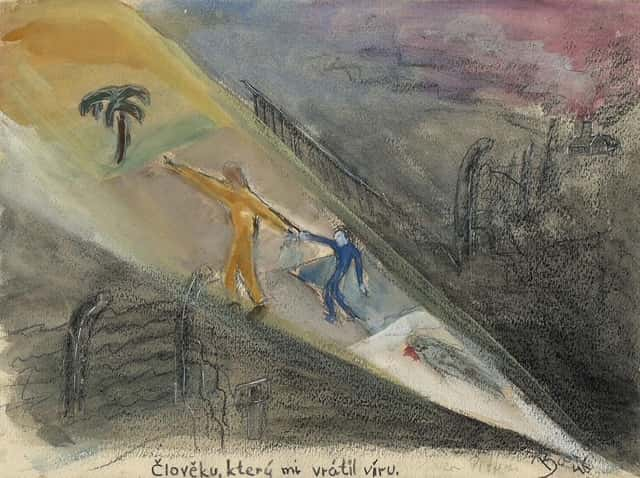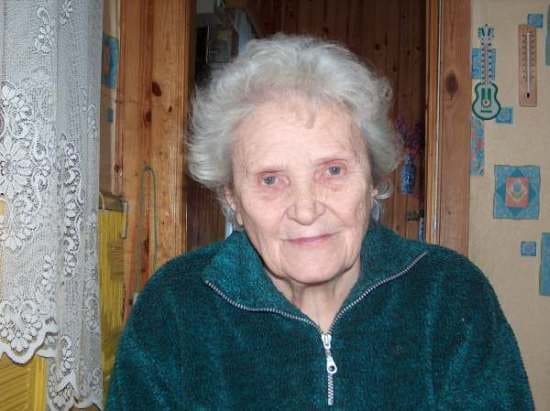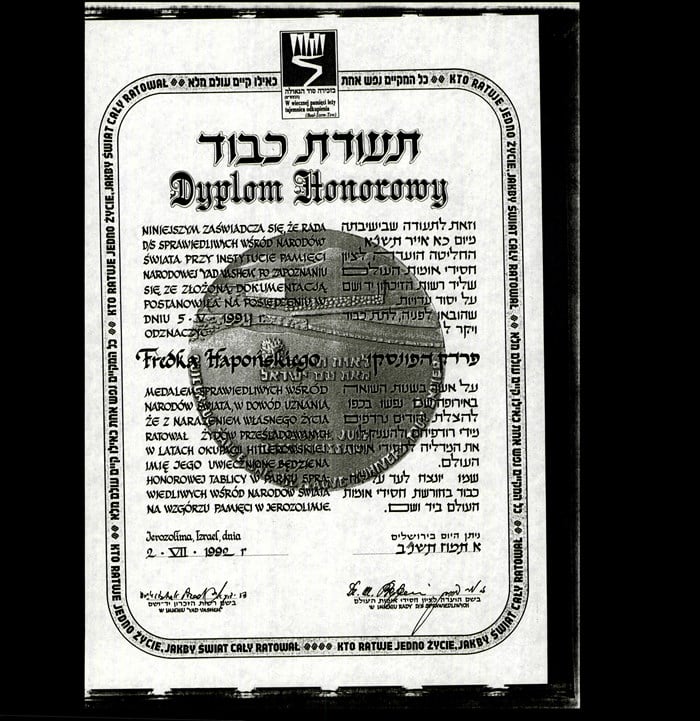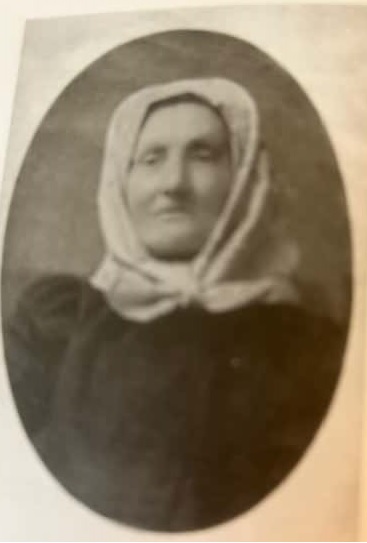Home » Righteous Among the Nations

We would like to share the stories of those who were willing to risk their lives to save Jews during the war. With antisemitism on the rise in Poland during World War II, acting with humanity and compassion towards Jews was no simple feat. Those who did so and were caught paid with their lives, as did their families. Many stories have been forgotten and lost to the depths of history, and the names of some of these heroes may never come to light.
The stories we have uncovered, drawn from the memoirs written by survivors, seek to honor the deeds of individuals who stood out among the Christian Polish population, which, for the most part, had collaborated with their Nazi oppressors. Though these men and women were never officially recognized by Yad Vashem as Righteous Among the Nations, they certainly deserved that title.
Precisely because there were so few who acted with humanity toward Jews, it is important for us to remember the names we have managed to discover, the names of those who acted out of a sense of humanity and selflessness.
Yehuda Bacon (b. 1929), “The Man Who Restored My Faith in Life”, 1945, watercolor, gouache, and charcoal on paper

Alfred Hponsky (Fredak), an unemployed bachelor living with his parents in a poor apartment in the town of Hrubieszow, in the Lublin voivodeship, was an old school friend of Chaya and Sara Papir. In October 1942, after a major akzia in the local ghetto, Fredak slipped into the ghetto and convinced the Papirs to allow him to smuggle their daughters to the Aryan side of the city, to save them from certain death. Fredak, who acted out of humanitarian motives and a sense of duty toward his friends, didn’t ask for any payment. With their parents’ consent, the Papir sisters were taken to Fredak’s apartment, where they were hidden in an underground cellar. Fredak took care of the two sisters without his parents’ knowledge, provided them with food, water and laundry facilities, and tended to their needs, knowing full well that by doing so, he was putting his own life at risk.

The sisters soon realized that they would have to find a new place to live, as the tenants in the building were hostile to the Jews. With Fredak’s help, Haya obtained “Aryan” papers and left the city, dressed as a young peasant. Her sister, Sara, who looked Jewish, remained under Fredak’s care. However, when she gave in to despair, she returned to the ghetto, and was never heard from again – she has presumably died in the Bodzin labor camp. Chaya Papir worked under a false identity until the area was liberated by the Red Army in July of 1944, after which she emigrated to Australia.
She corresponded with Fredak, who married Maria, and she and her daughter also came to Hrubieszow to visit him. Fredak helped other Jews escape from the Hrubieszow ghetto, but most of them were murdered in the nearby woods by Ukrainian collaborators. Two of the survivors, Abram Finkelstein and Jacob Chachowicz, left Poland after the war. On May 5, 1991, Yad Vashem recognized Alfred Hponsky as a righteous gentile.

Mrs. Lipińska assisted the Orenstein family at great risk to her own life and the lives of her family members.
In the town of Osilig, Mrs. Lipińska lived with her family. Henry Orenstein knew her because he had taught her son as a private tutor.
When Henry, his father, and his brothers fled from the Germans, they arrived at Mrs. Lipińska’s home. She hid them in her barn and provided them with food, without her family knowing about it. This act was done at great personal risk, as it could have cost her and her family their lives.
Later, when the Orenstein father and brothers wanted to return to Hrubieszow, Mrs. Lipińska explained to them how and where to cross the Bug River. Fearing they might not find their way, she accompanied them and guided them until they successfully crossed the river and met the rest of the family.
Ursula was Rose (Rosalia) Orenstein’s best friend from her high school in Lublin. Rose spent many days with Ursula’s family.
Ursula’s father, Mr. Burmistrz was the mayor of Lublin.
Rose ran away from her town Strzyzow to save her life. After walking for several days, hungry and tired, she was welcomed by the Grande family. The Grande family understood the danger involved in hosting a Jewish girl in their home. They gave her food, new clothes and a place to sleep. The father, Mr. Burmistrz advised her to leave Poland for Germany, where he believed it would be safer for her.
Mr. Burmistrz prepared forged papers for Rose in which she was named Kazimiera Lukashuk- from the city of Wlodimiez, Poland and no longer none as Rosalia Orenstein a Jewish girl from Strzyzow.
Years later, in 1985, while visiting Poland, Rose looked for Ursula, but unfortunately, she realized that Ursula had passed away a few years earlier at the age of 60.
Ursula Grande and her family saved Rose’s life.
Mr. Sechidlowski, a Christian teacher, risked his life to save Ruth Hodes, a young Jewish girl .
When the German army entered Poland, Mr. Sechidlowski approached Ruth’s father on his own initiative and said, “It’s a shame for such a talented girl to stop learning.” He asked Ruth to come and live in his home.
With her parents’ consent, Ruth moved into Mr. Sechidlowski’s house.
According to Ruth’s words, she was not yet mature enough at that time, and that is why she ran away from Mr. Sechidlowski’s home when she learned that her parents and brother had been murdered during a mass murder by the Germans. Ruth felt there was no point in continuing to hide and wanted to take part in the struggle against the Germans.